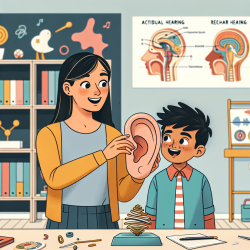Child and adolescent mental health (CAMH) services are critical to ensuring the well-being of young populations, particularly in low- and middle-income countries (LMICs) like South Africa. A recent study, "Child and adolescent mental health services in the Western Cape Province of South Africa: the perspectives of service providers," sheds light on the challenges and opportunities within this sector. This blog will explore how practitioners can leverage these insights to improve their practice and encourage further research.
Key Findings from the Study
The study, which utilized focus group discussions (FGDs) and semi-structured individual interviews (SSIIs) with 46 multidisciplinary health service providers, revealed several critical issues and recommendations for strengthening CAMHS in the Western Cape. Here are some of the most salient points:
- Lack of Resources: There is a significant shortage of CAMH resources, including dedicated staff and child-friendly infrastructure.
- Intersectoral Collaboration: Poor collaboration between different sectors, such as health, education, and social development, hampers service delivery.
- Training and Support: Limited access to training and weak support systems for staff were identified as major barriers.
- Negative Attitudes: High rates of negative attitudes among staff towards CAMHS were noted.
Recommendations for Practitioners
The study provides eight key recommendations to strengthen CAMHS:
- Increase CAMH staffing to ensure adequate coverage.
- Provide dedicated CAMHS at secondary care levels and child-friendly infrastructure at primary care levels.
- Shift the focus from the number of patients seen to the quality of care provided.
- Formalize intersectoral collaborations to streamline services.
- Increase learning opportunities for trainees to build a skilled workforce.
- Employ a lead professional for CAMHS in the province to coordinate efforts.
- Enhance support for staff through supervision and emotional support.
- Acknowledge and incentivize staff initiatives to boost morale and innovation.
Implications for Practice
For practitioners, these findings highlight the importance of advocating for better resources and training. Engaging in intersectoral collaborations and focusing on quality care can significantly improve outcomes. Additionally, practitioners should seek out opportunities for professional development and support to enhance their skills and resilience.
Encouraging Further Research
While this study provides valuable insights, further research is needed to explore the perspectives of service users, including children and adolescents. Understanding their experiences can inform more user-centered approaches to CAMHS.
To read the original research paper, please follow this link: Child and adolescent mental health services in the Western Cape Province of South Africa: the perspectives of service providers.










